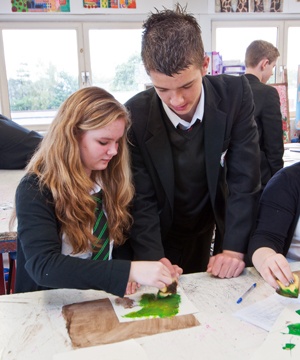
A Level and GCSE results – what opportunities can Arts Award provide?
BY: Annabel Thomas
12 Sep 2016
Every year towards the end of August the press is full of pictures of excited teenagers jumping into the air clutching their exam results. Results season also gives us an opportunity to dig a bit deeper into what is going on with regards to arts education in schools.
This year, the headlines screamed about it being the ‘biggest ever drop in GCSE results!’ and a ‘record number of young people get into university’! It’s the classic chicken and egg situation – if results improve, the exams are easier; if they do down, schools aren’t doing their job! But the reality is far more complex than any headline can capture.
For the first time there have been compulsory re-sits for 17 year olds who did not achieve their C grade at English or Maths last year, resulting in a downward trend on results. The cohort of young people sitting exams this year were also predicted to achieve less based on prior attainment – something the new Progress 8 score used to measure school success will hopefully over time demonstrate.
What about the arts?
This year, there was an overall decline of 8% from 2015 of young people sitting arts subjects at GCSE. Since 2010 (the year before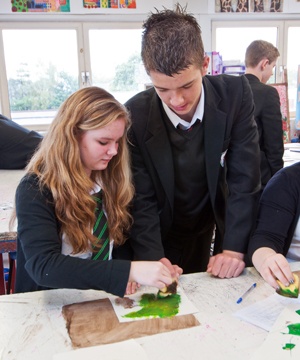 the EBacc was announced) there has been a 21% decline in the number of young people sitting arts subjects (including Art and Design, Dance, Design and Technology, Drama, Media/Film/TV Studies, Music and Performing/expressive art). The Cultural Learning Alliance has more data on this, and it makes for stark reading.
the EBacc was announced) there has been a 21% decline in the number of young people sitting arts subjects (including Art and Design, Dance, Design and Technology, Drama, Media/Film/TV Studies, Music and Performing/expressive art). The Cultural Learning Alliance has more data on this, and it makes for stark reading.
At A Level, the data is perhaps even more concerning – a 15% drop in the number of students taking performing or expressive arts at A Level compared to 2015, with music down 8.8% and drama down 6.5%. There is a greater pressure on students to choose ‘facilitating subjects’ at A Level, and is it that surprising that A Level entries are down when GCSE entries have been steadily falling as well?
But in the arts, we are all about creative solutions to challenging problems! It remains that schools are expected to offer a broad and balanced curriculum to students, and the arts remain as an entitlement area at KS4, meaning that students in maintained schools have a statutory entitlement to have the option to study an arts subject if they choose.
How can Arts Award help?
The reality is that fewer schools are offering the same level of arts provision, and students 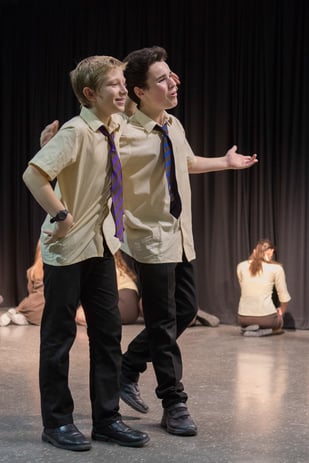 are being encouraged towards the EBacc suite. We feel that offering Arts Award is a fantastic opportunity to retain arts provision when teaching hours and opportunities are being slashed in schools (with DfE data indicating a 10% reduction in arts teaching hours). Arts Award's flexible framework means that schools can kick start an arts inspiration, and encourage students to broaden their interests and skills outside of school, or use it as an extra-curricular activity to boost their creative offer. Schools are now beginning to use Arts Award in Year 9 as a way of exploring what GCSE study in the arts may be like, with the aim to increasing student choice and take-up of arts subjects. Our recent Impact Study reported that nearly 30% of the sample said Arts Award had led them to study the arts at post-16.
are being encouraged towards the EBacc suite. We feel that offering Arts Award is a fantastic opportunity to retain arts provision when teaching hours and opportunities are being slashed in schools (with DfE data indicating a 10% reduction in arts teaching hours). Arts Award's flexible framework means that schools can kick start an arts inspiration, and encourage students to broaden their interests and skills outside of school, or use it as an extra-curricular activity to boost their creative offer. Schools are now beginning to use Arts Award in Year 9 as a way of exploring what GCSE study in the arts may be like, with the aim to increasing student choice and take-up of arts subjects. Our recent Impact Study reported that nearly 30% of the sample said Arts Award had led them to study the arts at post-16.
At A Level, Silver or Gold offer fantastic opportunities for young people to extend their arts practice and develop vital transferable skills in leadership, even if they are not studying the arts post-16. Gold also has the added benefit of UCAS points, and can be a valuable tool in securing a competitive university place.
‘Danielle was a youth theatre member for three years, completing her Gold Arts Award. Although she had a strong interest in theatre, her dream was to be a surgeon and she began applying for degree courses in Medicine. During her interview for medicine, the panel asked her about Gold Arts Award. She talked about her verbatim theatre piece that she had managed for her arts leadership project. The university said they were looking for someone who was well rounded: she was accepted on to this highly competitive course.’
Fiona Kelly, Cultural Development Officer, The Customs House
So yes, recent headline figures do present a concerning picture for arts education. Offering Arts Award is one way of retaining arts provision in schools, accrediting the arts and raising the status of the valuable contribution that it can have to individual young people and the wider school community. And that is no small thing!
For more information on entry numbers and A*-C pass rates by subject, please click here to visit the Education Datalab website.
Related posts
BY: Kat Stapley-Smith
BY: Katherine Stapley-Smith

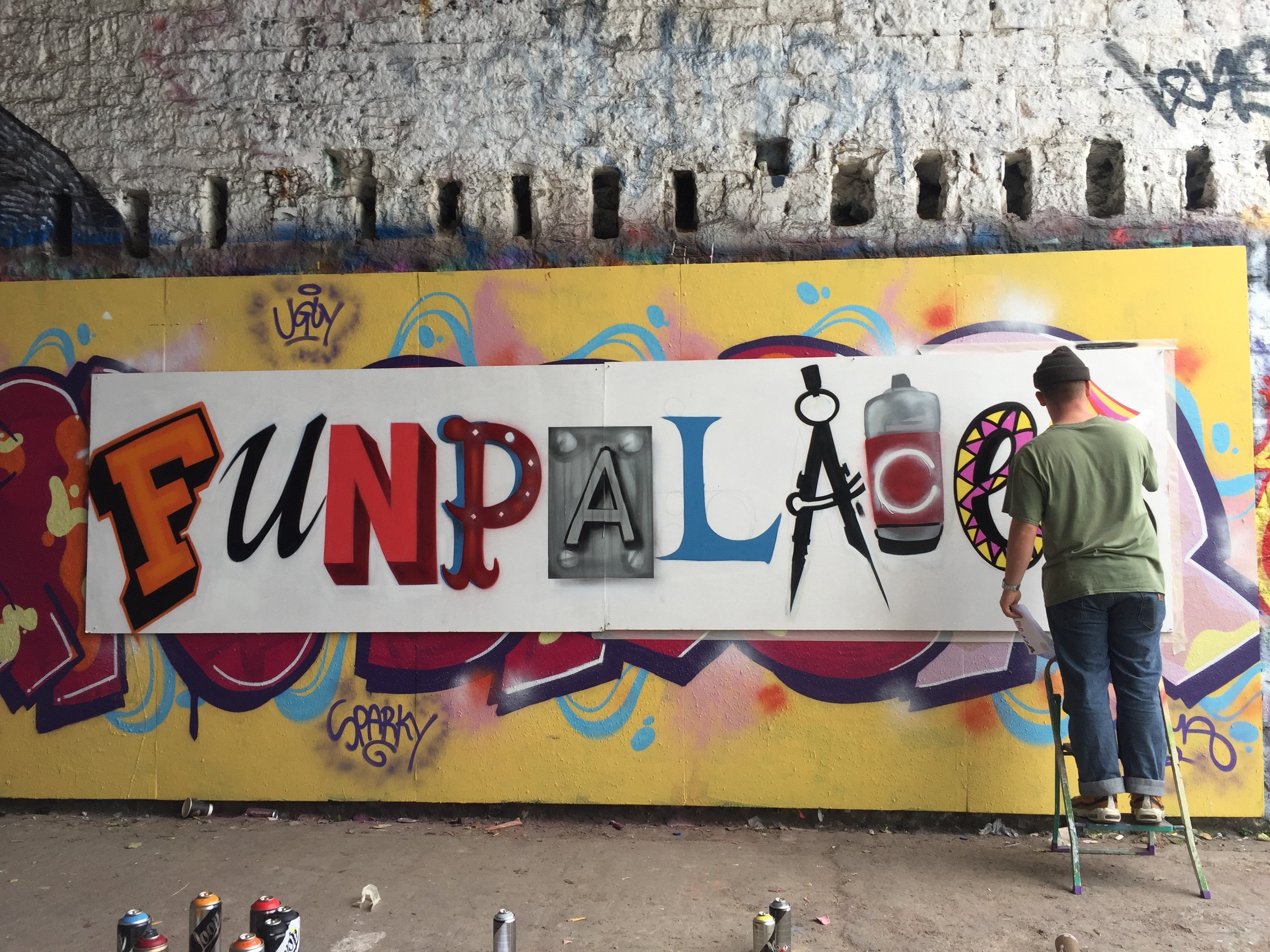
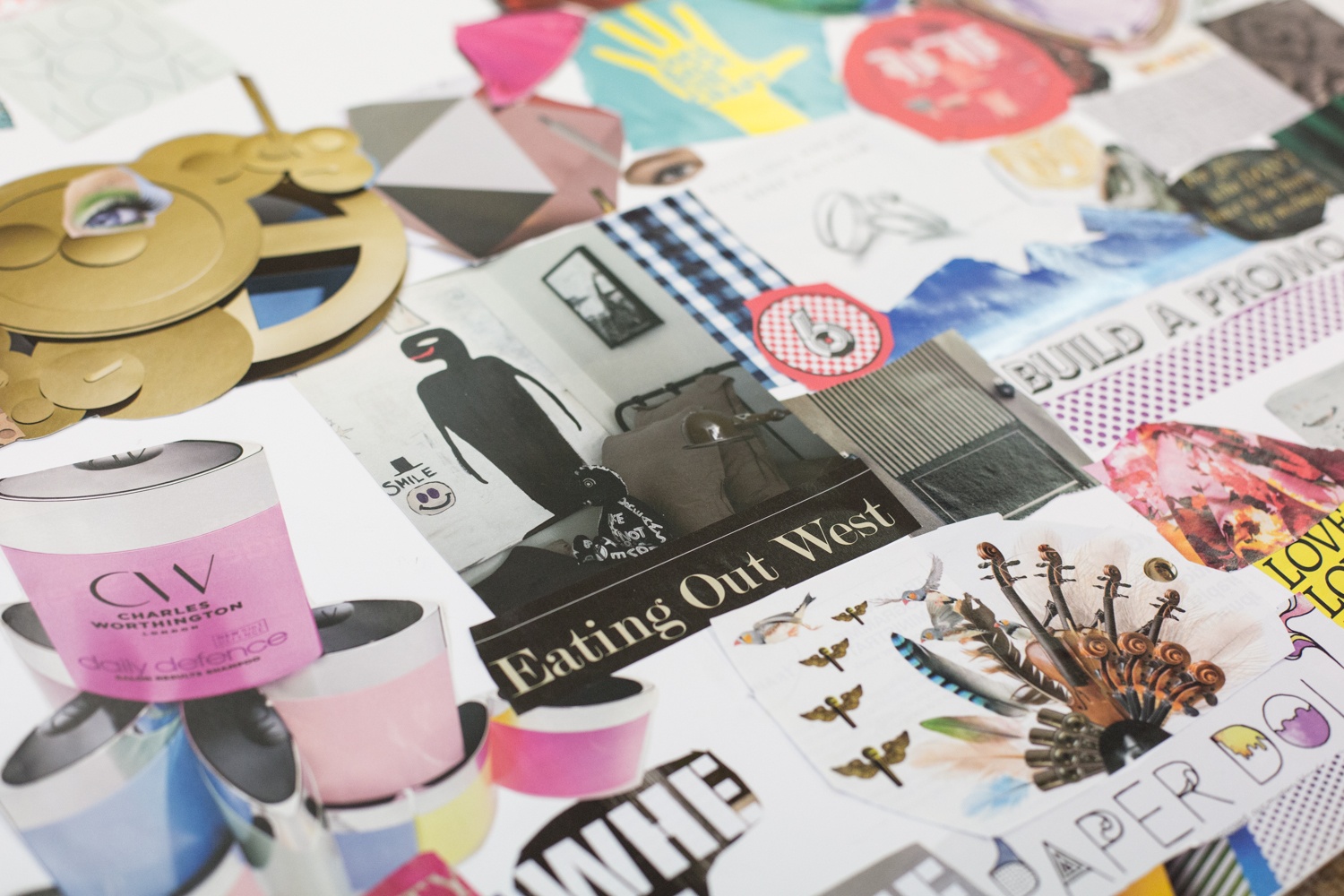
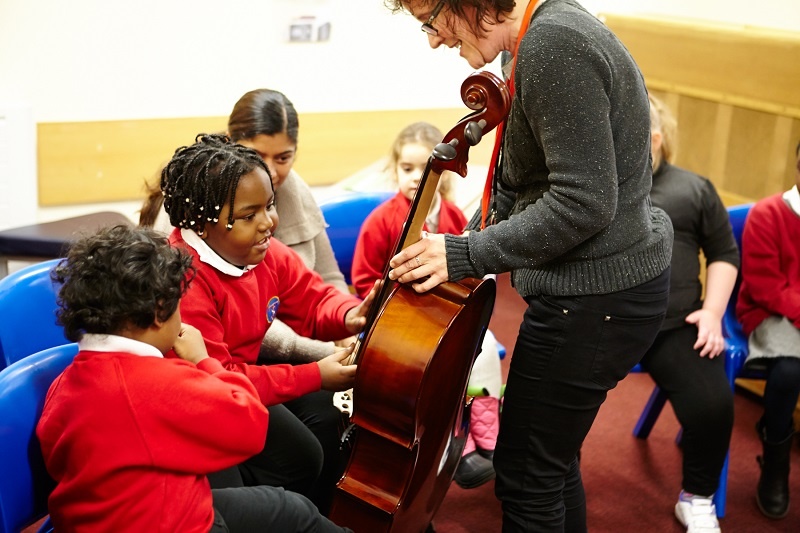
Comments & Replies